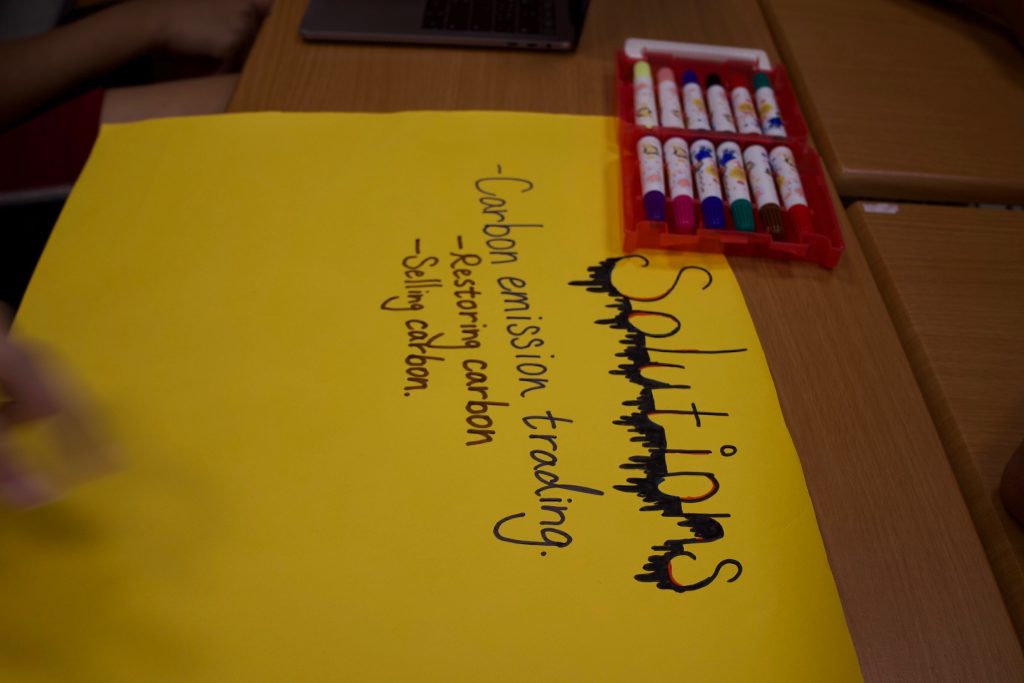
The Paris Climate Agreement, adopted in 2015, set a landmark goal: limit global temperature rise to well below 2°C above pre-industrial levels, ideally aiming for 1.5°C. But in our June 6 debate, students grappled with the pressing question—can this ambition actually be achieved?
Proposition (Yes, the goals can be met):
Proponents argued that while the Paris goals are challenging, they are not out of reach thanks to growing momentum in technology, policy, and public awareness.
- Technological Advancement
- Significant shifts from coal-based power to renewable energy sources are already underway.
- Nations investing in clean energy are seeing both environmental and economic benefits, despite the high initial costs.
- Carbon Pricing Initiatives
- Over 27 countries have already implemented carbon pricing mechanisms, providing financial incentives to reduce emissions.
- These policies are pushing industries toward sustainable practices.
- Increased Public Awareness
- Climate activism, education, and media coverage are making climate issues more visible.
- This pressure is influencing governments and companies to take action.
- International Commitment
- Although the agreement is based on voluntary national pledges (NDCs), the fact that most countries have signed on signifies a shared global responsibility.
- Progress may be uneven, but the structure encourages gradual improvement.
- Accountability Through Data
- Nations like China and India, major emitters, are under increased scrutiny. This transparency may encourage accountability and progress.
Opposition (No, the goals are unrealistic):
Those in opposition expressed serious doubt about the feasibility of meeting the agreement’s targets, pointing to both systemic and structural challenges.
- Lack of Technology and Funding
- Developing nations often lack the resources to invest in green technology.
- Transitioning to low-carbon economies requires massive financial commitments that not all countries can afford.
- Current Policy Trajectory is Insufficient
- According to the UN Environment Programme (UNEP), current national policies put us on track for a 2.7°C increase by the end of the century.
- This suggests that even with existing efforts, we are far from meeting the target.
- Disproportionate Burden
- Underdeveloped countries are increasingly contributing to global emissions, yet lack the support to implement meaningful reforms.
- Global cooperation remains uneven, with some nations pulling back from their commitments.
The opposition highlighted that while the vision of the Paris Agreement is commendable, ambition alone is not enough—real change requires binding policies, stronger accountability, and equitable funding mechanisms.
Final Verdict:
Conclusion: The debate ended without a formal vote, allowing participants and audience members to reflect on the complexity of climate policy and the need for both idealism and realism in environmental action.
